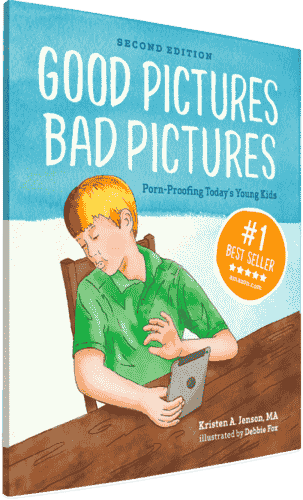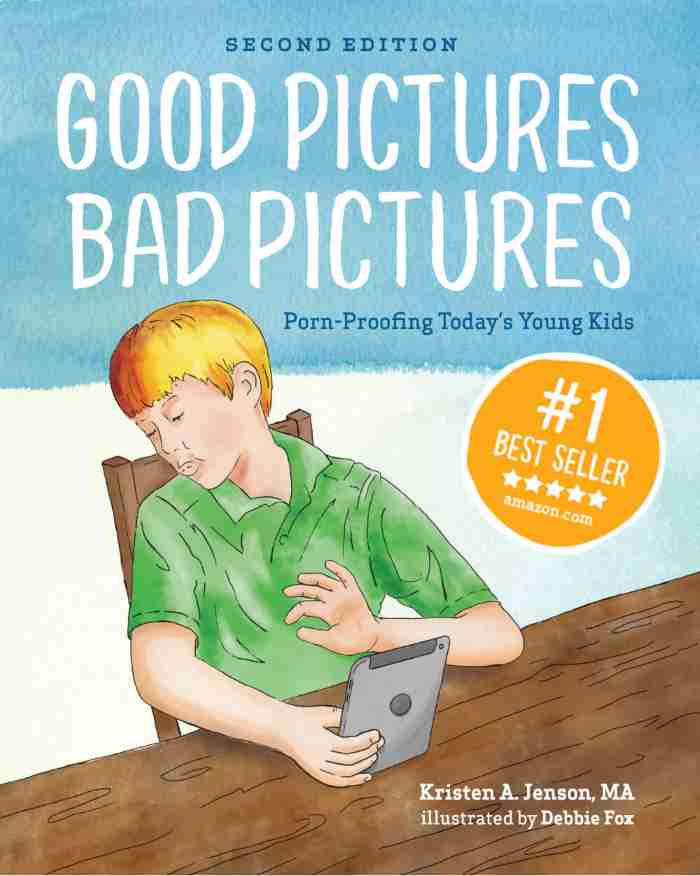

7 Tactics a Child Predator Uses to Lure Kids: Red Flag Phrases Every Parent Needs to Know
This is a guest post written by Kimberly King, an award-winning author, teacher, and authority on the subject of sexual abuse prevention. It was originally published on April 14, 2020 and updated on April 14, 2023.
As parents, we all want to keep our kids safe from harm. We teach our kids to wash their hands, cover their mouths, buckle up the seat belts, and always wear a helmet when riding a bike.
Sexual abuse prevention is a bit more complicated than that.
The good news is that with investing a minimal amount of time in sexual abuse prevention education, parents and kids can be empowered. Learning about sexual abuse prevention can help parents protect their kids immediately.
Related: Warning Signs of Sexual Abuse--How to Protect Your Child
Abusers have specialized methods to choose and manipulate victims through a variety of techniques and tricks. They try to gain the trust of the child and family first and eventually move toward "grooming."
Learning about the tactics and tricks child predators use will help parents be more aware. Here are some red flag phrases and tactics abusers may use.

1. "Can you keep a secret?"
Secrecy.
Sexual abuse thrives under layers of secrets. If your child hears this phrase from an adult, it is a HUGE red flag.
A skilled abuser may first ask a child to keep a secret that seems innocent, saying things like
- "Let's keep this treat our little secret."
- "Don't tell your mom we got ice cream before dinner."
These are small, benign secrets that seem harmless.
When confident the child has kept those types of secrets the abuser will move on to acts of sexual abuse, demanding secrecy about that behavior as well. At that point, the child may feel so guilty and ashamed that he or she feels they cannot tell.
Related: #MeToo — 10 Ways Predators Are Grooming Kids
What you can do:
Tell young children that they must never keep secrets from their parents.
Related: Are Your Kids Safe from Abuse in Sports? 3 Questions Every Parent Should Ask
2. "You're my special friend."
Friendship.
Abusers try to build up relationships with kids by promoting common interests. They also try to establish trust with kids by attempting to make children feel special or unique. An abuser will try to gain the affection of his or her intended victim by sharing these likes and things they have in common.
What you can do:
A good rule of thumb to remember is that kids need age-appropriate friends, and adults need adult friends.
Related: The 3 Big Red Flags of Sexual Abuse
3. "Let's spend some quality alone time together."
Isolation.
A big red flag! Adults have adult friends, not "special" kid friends. Any activity that requires an adult to be alone with a child is not safe, especially overnights. Abusers try to normalize certain behaviors and lower inhibitions. So, a situation where a child must change clothing or do a sleepover is inherently risky.
What you can do:
Implement the rule of three. This rule requires that there should always be at least three people present - one adult and two or more children, or two adults and one child.
Related: Child Sexual Abuse–5 Things Parents Must Do to Avoid Causing More Trauma
4. "Does Somebody need a hug?"
Affection.
Pats on the back, a hug to say goodbye- may be completely acceptable in many circumstances. Because of this, many predators seek careers where they have easy access to children. Be aware of your child's reactions to other adults and comfort levels regarding physical affection.
What you can do:
Teach your children that if they ever feel uncomfortable about any physical contact, they need to tell you. Learn about consent and teach body autonomy to your little ones from an early age.
Related: 5 Body Safety Rules Every 5-Year-Old Should Know
5. "Want to hear a dirty joke?"
Humor.
An abuser can lure a child closer by using jokes and games. These may start "G" rated. But, soon lead to "dirty" jokes, showing children online pornography, or by introducing sexual games.
What you can do:
If your child is old enough to have internet access, make sure you are monitoring email and social network messages. A predator may send explicit materials through social media apps. And may ask or demand inappropriate photos from your child. Kids can get easily trapped and scared in this predicament.
Consider installing Apps like BARK to protect and monitor your child.
Related:
4 Ways Porn Makes Kids More Vulnerable to Sexual Abuse
Pedophiles Hunt Kids in Popular Gaming Chat Rooms
Kids at Growing Risk of “Sextortion” Warns Department of Justice
[[CTA]]
6. "Your parents don't understand you. I know how you feel."
Empathy.
Sometimes, kids can feel isolated or alone, especially during family duress. Separations, divorce, or other changes in family structure or location can make kids more vulnerable.
Predators often target kids who feel isolated from their peers by using empathy.
What you can do:
If your family does go through a stressful period, pay attention. A great family counselor can help get ahead of some of these issues.
7. "Your parents will never forgive you if they find out what we did, you didn't say No!"
Shame.
A child is not able to give consent in a sexual relationship. The blame/ shame, control game is hard to handle. The predator will use a child's confusion and fear as they attempt to maintain control over the victim.
What you can do:
Kids need to know that no matter how long any inappropriate contact or abuse has gone on, it is NEVER their fault, and you will always help, protect, and love them.
A prepared child is less of a target.
Parents have the immense responsibility of trying to protect their families from sexual abuse. The best way to add a layer of protection is to educate yourself and your kids about sexual abuse.
Sexual abuse can be prevented when parents learn the facts about sexual abuse and minimize the risks for the family.
Here are some resources to learn more:
- Good Pictures Bad Pictures series of books
- Our eBook How to Protect Kids from Sexual Abuse: Body Safety Toolkit
- FREE course for parents and caregivers at Simply Safe Kids Class (it only takes 30 minutes!)
- For a more extensive 2-hour, CEU approved class with Darkness To Light sign up for Stewards of Children Training.
- For more information on sexual abuse prevention and other difficult topics for children, visit www.kimberlykingbooks.com



Good Pictures Bad Pictures
"I really like the no-shame approach the author takes. It's so much more than just 'don't watch or look at porn.' It gave my children a real understanding about the brain and its natural response to pornography, how it can affect you if you look at it, and how to be prepared when you do come across it (since, let's face it... it's gonna happen at some point)." -Amazon Review by D.O.








